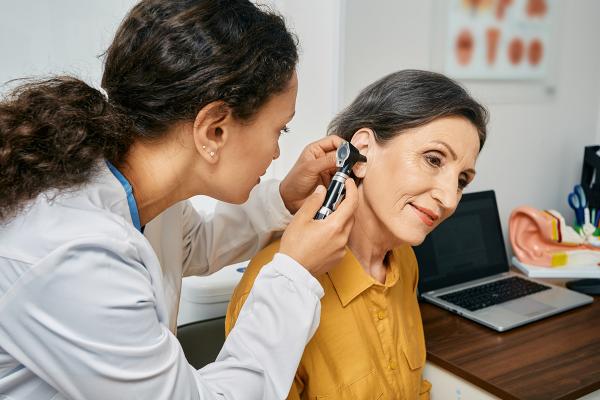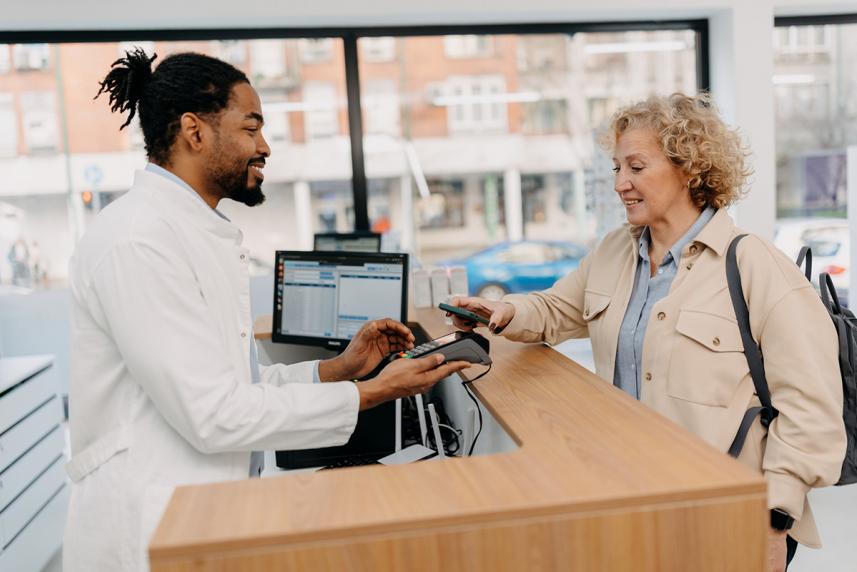
EPIC Hearing Healthcare helps members access hearing exams, hearing aids and more. Sign in to learn more and check eligibility.
Do you have a flexible spending account or health savings account? If so, don’t forget that you can use these funds to help pay for hearing aids and other hearing-related expenses.

Do you contribute to a flexible spending account (FSA) or health savings account (HSA)? Both can make paying for unplanned medical expenses less stressful. These tools help you save money on health care costs — including hearing aids and other eligible hearing health expenses.
Quick refresher: FSAs and HSAs are accounts you’re able to get when you have health insurance through your employer.1,2 Self-employed people may also be eligible for an HSA. These accounts let you set aside pretax dollars to pay for certain health care products and services that aren’t covered by your insurance plan. This can include copayments, prescription drugs, health and wellness items, medical equipment and more.
With an FSA, the funds you contribute must be used by the end of each calendar year.1,3 If you don’t use up the full amount, you may lose it. HSAs are only available if you’re enrolled in a high-deductible health plan (HDHP).2 The money in your HSA rolls over year after year. You can use the funds for future medical expenses even if you retire or change jobs or health plans.
Do you wear hearing aids — or suspect you may need to get them soon? Hearing aids can be expensive. And using your FSA or HSA funds could be a smart way to defray the cost. You might be surprised at the other hearing health-related items and services you can pay for with these accounts too. This list will get you started.4

EPIC Hearing Healthcare helps members access hearing exams, hearing aids and more. Sign in to learn more and check eligibility.
You may have access to hearing health benefits or discount programs that help with the cost of new devices. But you can use your FSA or HSA funds to cover any out-of-pocket costs for your hearing aids.
Do your hearing aids use disposable button batteries? You can pay for them with your FSA or HSA funds. Hearing aid parts (such as extra wax traps) and accessories like dry aid kits are also eligible.
You can use your FSA or HSA to pay for the cost of repairs or upkeep needed to operate your devices.
A wide range of OTC medications are FSA and HSA eligible. This includes products to help remove excess ear wax, like earwax-softening drops and bulb syringes.
You can pay for the cost of prescription drugs. This includes medications your primary care provider may prescribe for conditions that affect your ears, such as an ear infection.
Your FSA or HSA dollars cover the cost of certain equipment that helps you hear better, such as captioned phones. You can also include the cost of repairing the equipment.
For people who are hard of hearing, installing alarms that use strobe lights or extra-loud sounds when they detect smoke or carbon monoxide in the house may boost safety. You can use FSA or HSA funds to cover the cost of medical-related home improvements, including modifying fire alarms, smoke detectors and other warning systems.
Do you need to take a bus, taxi or train to get to an appointment with your hearing care professional? Your FSA and HSA dollars can be used to cover that cost. If you drive there, you can use the funds to cover parking and tolls.
Ready to request a hearing exam and consultation? EPIC Hearing Healthcare has a wide network of hearing care professionals. Request an appointment.
Sources
Information is for educational purposes only and is not a substitute for the advice of a licensed medical provider. Consult your provider prior to making changes to your lifestyle or health care routine.
Network size varies by market.